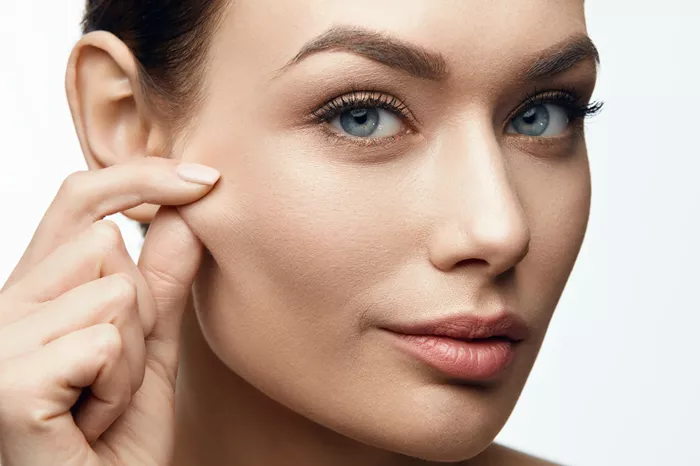Collagen is a crucial protein that maintains skin’s elasticity and firmness. As we age, collagen production decreases, leading to wrinkles, sagging, and fine lines. Restoring collagen can help reverse these signs of aging, resulting in a more youthful appearance. This article explores various methods to restore collagen in your face, including lifestyle changes, topical treatments, dietary adjustments, and medical procedures.
Understanding Collagen and Its Importance
What is Collagen?
Collagen is a protein that constitutes about 75% of the skin’s dry weight. It provides structure, strength, and elasticity to the skin. Collagen is also found in bones, muscles, and tendons, playing a vital role in overall bodily health.
Why Does Collagen Decrease?
Several factors contribute to collagen depletion:
Aging: Natural aging processes slow down collagen production.
Sun Exposure: UV rays break down collagen fibers in the skin.
Smoking: Chemicals in cigarettes damage collagen and elastin.
Poor Diet: Lack of essential nutrients can hinder collagen synthesis.
Stress: Chronic stress can negatively impact collagen production.
Natural Ways to Boost Collagen Production
Healthy Diet
Protein-Rich Foods: Consuming foods high in protein, such as chicken, fish, and legumes, provides the amino acids necessary for collagen production.
Vitamin C: Essential for collagen synthesis, vitamin C can be found in citrus fruits, berries, and leafy greens.
Zinc: Zinc aids in collagen production and can be obtained from nuts, seeds, and shellfish.
Copper: This mineral, found in nuts, seeds, and whole grains, is crucial for collagen formation.
Antioxidants: Foods rich in antioxidants, like blueberries, spinach, and green tea, protect collagen from damage.
Hydration
Water: Staying hydrated is essential for maintaining skin elasticity and supporting collagen synthesis.
Collagen Supplements
Powder and Pills: Collagen supplements, available in powder or pill form, can boost collagen levels in the skin.
Bone Broth: Drinking bone broth, rich in collagen, can improve skin health.
Topical Treatments
Retinol Creams: Retinoids, derivatives of vitamin A, stimulate collagen production and improve skin texture.
Peptide Serums: Peptides are amino acids that signal the skin to produce more collagen. Peptide serums can enhance skin firmness.
Topical Vitamin C: Applying vitamin C serums can boost collagen production and protect the skin from UV damage.
Hyaluronic Acid
Hydration and Plumping: Hyaluronic acid helps retain moisture in the skin, supporting collagen structure and providing a plumping effect.
Advanced Medical Treatments
Laser Therapy
Fractional Laser: This treatment uses laser beams to stimulate collagen production by creating controlled micro-injuries in the skin.
Microneedling
Collagen Induction Therapy: Microneedling involves using tiny needles to create micro-injuries, promoting collagen synthesis and improving skin texture.
Chemical Peels
Exfoliation: Chemical peels remove the outer layer of dead skin cells, promoting collagen production and revealing smoother skin.
Radiofrequency Treatments
Heat Stimulation: Radiofrequency treatments use heat to stimulate collagen production, resulting in tighter and firmer skin.
Platelet-Rich Plasma (PRP) Therapy
Growth Factors: PRP therapy involves using your own blood to extract platelets and growth factors, which are then injected into the skin to boost collagen production.
See also: How Long Does Masseter Botox Last Reddit?
Lifestyle Changes for Collagen Preservation
Sun Protection
Sunscreen: Wearing broad-spectrum sunscreen with SPF 30 or higher protects the skin from UV damage, preserving collagen levels.
Protective Clothing: Wearing hats and sunglasses can further shield the skin from harmful UV rays.
Healthy Habits
No Smoking: Quitting smoking can prevent further collagen damage and improve overall skin health.
Stress Management: Practicing stress-relief techniques like yoga and meditation can positively impact collagen production.
Regular Exercise: Exercise improves circulation, which can help deliver essential nutrients to the skin, supporting collagen production.
Understanding the Role of Genetics
Genetic Factors
Inherited Traits: Genetics play a significant role in determining how quickly collagen breaks down in your skin.
Epigenetics: Lifestyle choices can influence gene expression related to collagen production.
Personalized Approaches: Understanding your genetic predisposition can help tailor collagen-boosting strategies to your specific needs.
Myths and Misconceptions About Collagen
Collagen Creams
Effectiveness: While collagen creams can hydrate the skin, they cannot penetrate deeply enough to significantly boost collagen production.
Instant Results
Patience Required: Restoring collagen is a gradual process that requires consistent effort and patience.
Natural vs. Synthetic Collagen
Quality Matters: Choosing high-quality, natural collagen supplements and treatments can yield better results than synthetic alternatives.
Combining Treatments for Optimal Results
Multi-Modal Approach
Synergy: Combining dietary changes, topical treatments, and medical procedures can provide synergistic effects, enhancing overall collagen restoration.
Consistency
Routine Maintenance: Establishing and maintaining a consistent skincare and health routine is crucial for long-term collagen preservation.
Consulting Professionals
Dermatologist Guidance: Consulting with a dermatologist or skincare professional can help determine the most effective collagen-boosting strategies for your skin type and concerns.
Conclusion
Restoring collagen in your face involves a multifaceted approach that includes healthy lifestyle choices, dietary adjustments, topical treatments, and advanced medical procedures. By understanding the factors that contribute to collagen depletion and implementing strategies to boost collagen production, you can achieve a more youthful and radiant complexion. Remember that consistency and patience are key to seeing long-lasting results.
Related topics:
Does Stress Really Cause Wrinkles?
5 Reasons Why You Have Forehead Wrinkles
Best 5 Ways To Reduce Nasolabial Lines Naturally


